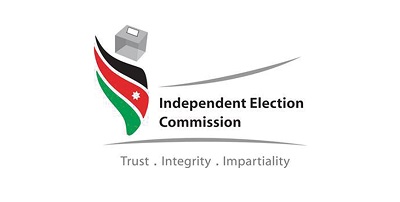As Secretary of State, Rex Tillerson Didn’t Follow the Script for Success - By Michael Allen, Foreign Policy
Cabinet secretaries need outside allies and early accomplishments to succeed in Washington. Outgoing U.S. Secretary of State Rex Tillerson’s tenure may have lost the president’s confidence, but senior Washington officials can learn from his experience.
To succeed, Cabinet secretaries need to cultivate the power centers in Washington — especially if their first job there is secretary of state. The most important relationship, of course, is with the president, who is the ultimate source of authority. An alliance with a powerful and strong secretary of defense, as Tillerson had with James Mattis, is insufficient. In today’s Washington, to succeed, heads of agencies must dedicate significant time and effort to cultivating relationships with Congress, the expert community, and the media.
Congress, for all its faults, is the most important institution in Washington. Its members blanket the airwaves. Hearings draw media coverage. The most successful heads of agencies view their oversight committees as boards of directors. Alone, appearing at annual budget and oversight hearings is insufficient. Instead of dreading the grandstanding, secretaries must embrace it. As a former member of Congress, former CIA Director Leon Panetta understood this innately. Panetta won over Democrats and Republicans alike by creating opportunities for meaningful interaction. On many weeknights, Panetta hosted members of Congress for dinner on the seventh floor of the CIA headquarters. The oversight committees hosted him for informal coffees, where he disarmed members with stunning frankness.
In the depths of the Iraq War, in 2007, then-President George W. Bush’s national security advisor, Stephen Hadley, visited Capitol Hill dozens of times to meet with members of Congress in intimate settings. Members whose primary sources of information were media accounts were relieved to hear that there was actually a plan. Keeping Congress in the loop was important enough that Bush dedicated significant time to hosting legislators for roundtable discussions in the White House residence and chairing Roosevelt Room meetings so that members of Congress, via secure video teleconference, could pose questions directly to Gen. David Petraeus and Ambassador Ryan Crocker in Iraq.
Not least, Cabinet secretaries must have clear agendas and expend precious time and energy explaining them.
A departmental press corps that travels is an asset, not freight. Tillerson was defined by reorganization, budget cuts, and the defections of senior diplomats. The State Department may be in dire need of a serious reorganization, but we would not know it from studying the public record. Tillerson caught on late to the need to explain his policy agenda to the Washington expert class. His vision for the Indo-Pacific, which he delivered at the Center for Strategic and International Studies in October 2017, was an example of a successfully executed public event. But it was an exception, and without allies, his standing eroded.
Although Attorney General Jeff Sessions may be one tweet away from the guillotine, his survival proves the rule. When President Donald Trump hinted at ousting Sessions, his allies in Congress and the conservative establishment rose up and deterred the president, at least temporarily.
Finally, Tillerson was deprived of an early diplomatic accomplishment. When Chinese fighter jets forced a U.S. surveillance plane to make an emergency landing on the Chinese island of Hainan in 2001, then-Secretary of State Colin Powell sprung into action, winning the release of the U.S. airmen. The Iraq War would come later, but it gave Powell an early victory. The dispute among Gulf allies Saudi Arabia, the United Arab Emirates, and Qatar gave Tillerson a more difficult but similarly solvable crisis. Media reports suggest the White House’s early backing of Saudi Arabia undermined Tillerson. But this was a missed opportunity that could have been a foundational success.
Tillerson’s not-from-Washington approach would have been remarkable had it succeeded. One of his aides explained privately to me that in his early days as secretary, Tillerson emphatically rejected strategies that focused on explaining himself and cultivating allies. His approach was to quietly learn his brief, operate behind the scenes, and eventually report quarterly, as he had as CEO of ExxonMobil.
A studious, quiet secretary focused on achieving medium- to long-term gains, perhaps unfortunately, does not often work in today’s Washington.
Latest News
 Prime minister directs government to support IEC ahead of upcoming elections
Prime minister directs government to support IEC ahead of upcoming elections Parliamentary elections for 20th Lower House to be held on September 10 – IEC
Parliamentary elections for 20th Lower House to be held on September 10 – IEC Amman Chamber of Commerce says GDP grows by 4.4% in 2023
Amman Chamber of Commerce says GDP grows by 4.4% in 2023 King orders holding parliamentary elections in accordance with law, checks on electoral commission’s preparations
King orders holding parliamentary elections in accordance with law, checks on electoral commission’s preparations- N. Macedonia starts elections that could decide stalled EU talks
Most Read Articles
- Palestinian prime minister, Jordanian ambassador discuss humanitarian efforts in Palestine
- US president signs bill to provide new aid for Ukraine
- Senate president, Rwanda’s ambassador discuss bilateral relations
- Prime minister directs government to support IEC ahead of upcoming elections
- 'Sinwar Above Ground': Hamas official's revelation shocks Israeli Occupation
- Iran cuts Syria presence after strikes blamed on Israel —monitor
- “Israel” withdraws main infantry brigade from Gaza
- US Supreme Court seems split on Idaho abortion ban
- Vaccines saved at least 154 million lives in 50 years — WHO
- Four dead as floods wreak havoc in Kenyan capital